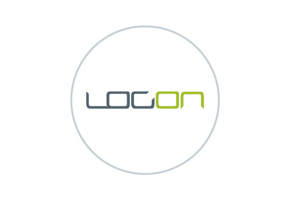Small Basic Project: Transformation of governance and public service delivery mechanisms in the digital age (J5-1789)
Head of the research group: Prof. dr. Aleksander Aristovnik
The public administration constantly needs to look for opportunities to improve its productivity, increase collaboration, improve process efficiency and focus on innovation. In this regard, digitalization represents a significant opportunity to fundamentally redesign public governance: enabling changes in relationships within government, and between governments and their citizens, as facilitated by big data, cloud computing, blockchain technology and other ICT-related drivers of administrative development. Yet, according to the Digital Economy and Society Index (DESI 2018) and other rankings, Slovenia’s PA digitalization performance is mediocre, compared to other European Union (EU) states and globally. Therefore, the project aims to develop a digital transformation model (DTM) for the Slovenian public administration. The model will be based on the limitations of Slovenia’s present model of public governance and service delivery, recognizing existing international model guidelines which will be significantly modernized according to the needs of governance in the digital era by incorporating the following innovative improvements: 1) the emerging and already used contemporary information technologies (social networks, the IoT, blockchain, mobility, analytics/big data, machine learning cloud computing etc.), 2) looking beyond the existing model’s bureaucratic and technocratic focus, tailoring the administrative and service design to the principles of modern public governance ((Neo)-Weberianism, NPM, good governance, digital-era and post-digital-era governance etc.), 3) utilizing the potential of citizen co-creation, significantly adding to the model’s feasibility (due to the comprehensive amount of input gained from its users etc.), 4) tailoring the DTM to Slovenian national particularities from the governance perspective (post-socialism, Rechtsstaat culture, EU membership, a small state etc.), 5) ensuring the DTM’s adaptability to administrative operation and service delivery mechanisms at different governance levels (the level of the state agency, ministries and individual organizational units within the latter, the level of the municipality, territorial-administrative unit etc.). Along with the establishment of a scientific model, the challenge of implementing the DTM in administrative practice will also be addressed. The implementation feasibility will be supported by the model’s focus on directly controllable elements incorporated within an openly available innovative software solution, where public institutions will be presented with the current state of digital transformation as well as the referential values based on best-performing institutions. For the responsible policymakers and the citizens, particularly the aggregate results will be useful, with a focus on raising awareness about the least exploited elements of digital transformation. Further, by monitoring the users’ feedback, technological improvements and best practices regarding both, the DTM and consequently the software solution will also be dynamically adjusted, thereby overcoming limits of the existing finite-state digital governance models. The scientific contribution is demonstrated in the development of a unique DTM directly addressing the lack of adequate digital transformation frameworks and existing limitations in governing the public administration system in the digital age. This proves to be particularly relevant as it represents one of the most important contemporary interdisciplinary research issues. Content – wise, the project ensures the level of comprehensiveness still required in studies in Slovenia and the broader EU area. Thus, the DTM will act as a reliable framework for service and administrative design, fostering transparent and participative authoritative decision-making, a more cost-efficient public administration, user-focused public services, crowdsourcing, adequately holistic data analysis and policymaking.
Transformation of governance and public service delivery mechanisms in the digital age (SICRIS)
Duration (from/to):
1. 7. 2019 – 30. 06. 2022
Contracting Authority:
Slovenian Research Agency
Financing:
The project is being financed with 1596 yearly hours (A price category) for 3 years.


Members of the research group and links to the SICRIS portal
The group consists of researchers from the two participating organizations: University of Ljubljana, Faculty of Administration and consultancy company Logon d.o.o.
University of Ljubljana, Faculty of Administration:
Prof. dr. Aleksander Aristovnik (leader)
Assoc. Prof. dr. Mirko Pečarič
Assist. Prof. dr. Nina Tomaževič
Luka Vavtar, Technical associate
Logon informacijske tehnologije, d.o.o.:
The project will be based on a scientific methodology that complementarily encompasses qualitative and quantitative methods. Five work packages (WPs) will assist in thoroughly checking the hypotheses and, thus, realizing the project’s aim (Table 2). A detailed description of the work packages follows.
